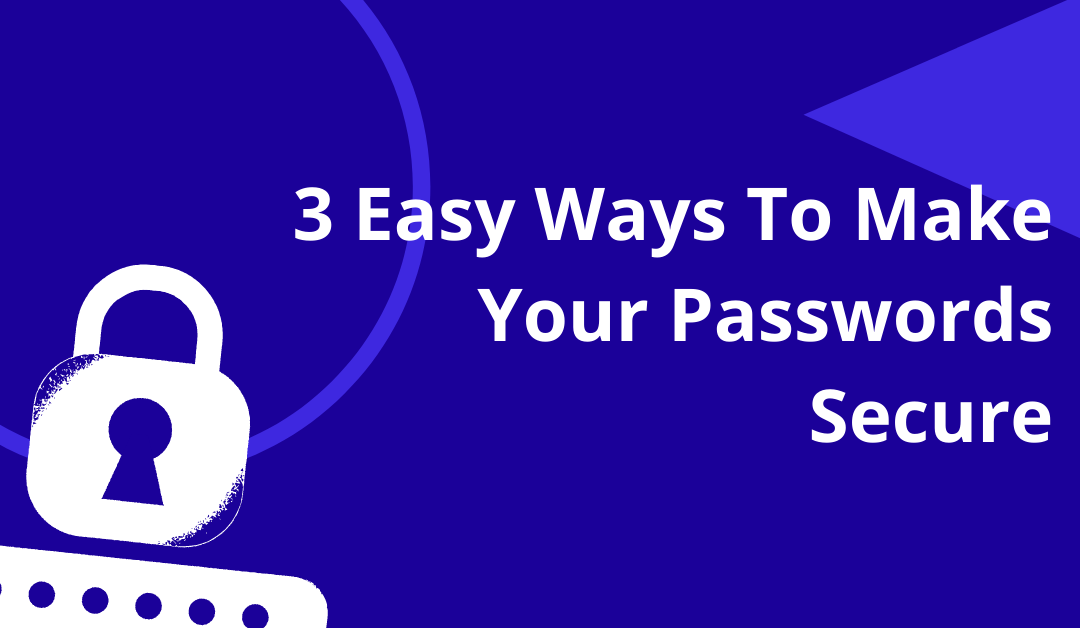It seems almost too simple to be a key element in whether or not your organisation remains safe from cyber-attacks, however, the process of setting up a secure password for the software programs and online portals you use can be the difference in how easy it is for hackers to get close to your files and data.
Something you will hear us continue to stress is the fact that hackers are getting savvier in how they attempt to mask any malicious attacks. One of these ways is through password attacks, in which multiple methods are used to try and obtain critical passwords that give them access to the most critical data.
While this may seem a bit scary, the good news is that preventing a majority of these types of attacks is an easy process with some simple considerations you can implement, whenever you create a new password.
Use uncommon phrases, instead of a word
A password attack will begin with some common themes around your industry and organisation. If the hackers are even smarter, they might try and look into specific people within an organisation and use words that resemble their interests (if there is enough data). A simple way to eradicate any chance of guesswork is to use phrases for your passwords that do not closely resemble anything about you, your interests, company or industry. For example, the phrase ‘ThePinkRabbitJumpedIntoTheMarsCrater01!’ , while it may not comply with all password complexity rules, it is extremely random and has a very small chance of being guessed.
Implement Multi-Factor Authentication (MFA)
This extra layer of protection is a great way to secure any logins to your accounts and portals, across an array of devices. You can set up MFA many ways, however, the most common are to implement a numbered code when you log into your email (Outlook) account, or by answering secret questions that you have implemented, in which you are the only person who knows the answer. Most online platforms should have this feature, and if it’s available, its a great idea to take advantage of it to create secure password.
Avoid Reusing A Previous Password You Have Created
Yes, this is something we are all guilty of, however, it doesn’t mean that we can’t make a change. Even though it might seem like a hassle and more effort, having a unique password for each program, website and application you use, will minimise the risk of hackers accessing all of these platforms, should they manage to guess or access one of these passwords. By using unique passwords for each platform, you minimise the risk of an attack (also, Basketball01 and Basketball02 are not unique enough, they need to be two totally random phrases as per the example above).
BONUS TIP: Even though it makes your life easier, try not to save your password when you log into any program or portal, across any of your devices. If someone gains access to one of your devices, whether remotely or if it is stolen, all they have to do is go onto the website or program and automatically sign in to access everything you normally would.
By using the above considerations as a starting point, you should be able to manage the risk associated with any password attacks, ensuring you and your organisation’s data and information remains secure. Remember to use phrases instead of words, to use 2FA wherever possible and avoid doubling up on the same password.
